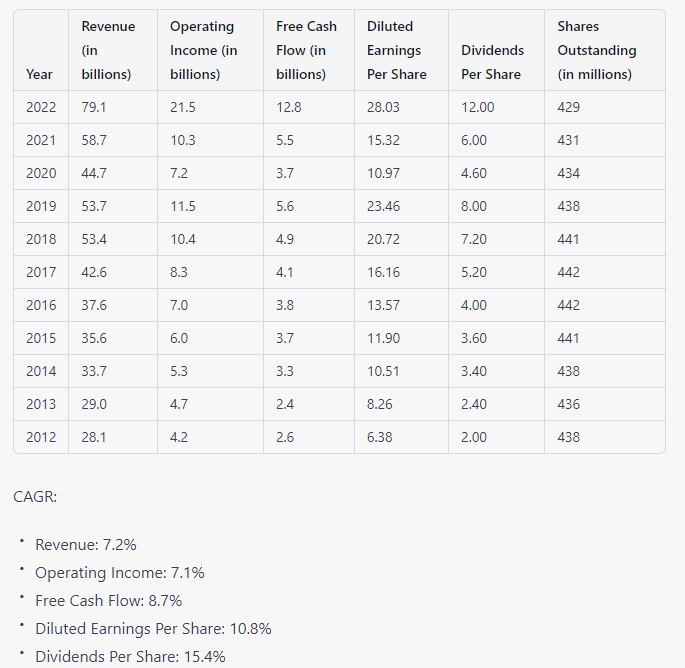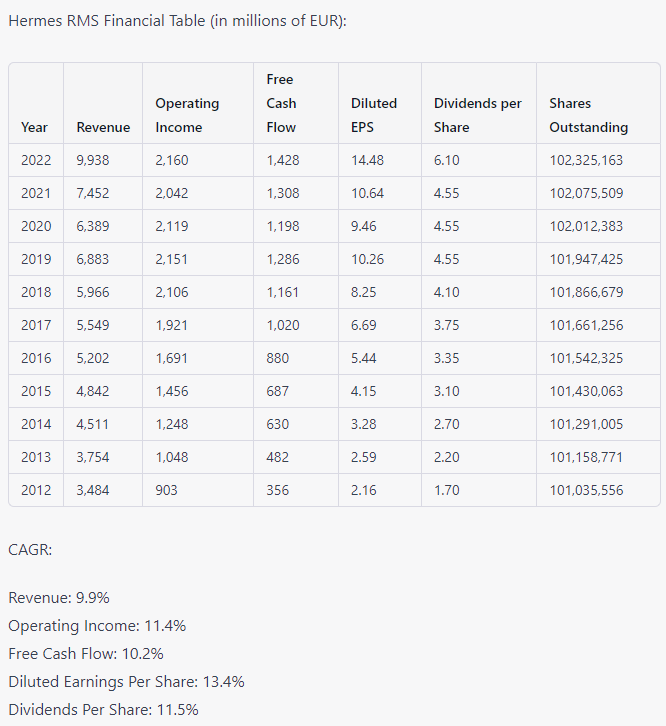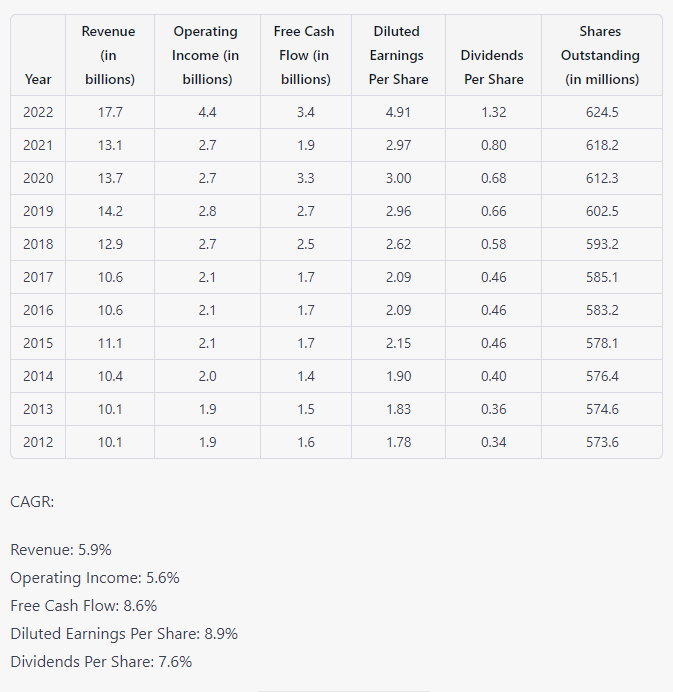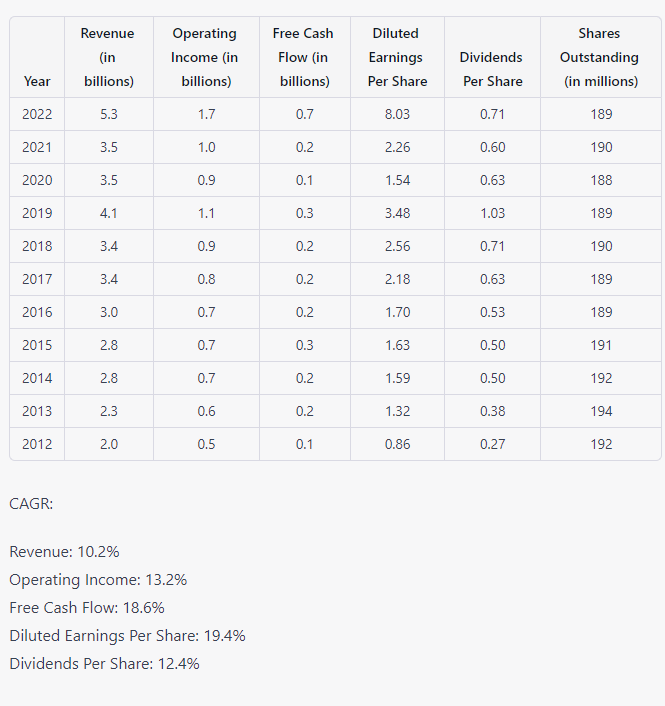From Status Symbol to Profitable Investment: The Rise of Luxury Brands in the Market
How expensive brands have beaten the market even through recessions

Disclosures: I do hold positions in the mentioned companies, this is not a suggestion to buy or sell mentioned companies.
Introduction
Today, we will take a closer look at some of the top luxury brands in the market, including LVMH, KER, Hermes RMS, Richemont, and Ferrari, and examine their business models, revenue streams, and market positions to gain valuable insights into their success. Before delving into their strategies, it's important to understand why luxury brands have been able to outperform the market despite economic uncertainty.
Resilient in the Face of Economic Uncertainty
Luxury brands have consistently outperformed the market due to their resilience and adaptability in economic uncertainty. Catering to a niche market of high net worth individuals who are less affected by economic fluctuations, luxury brands have maintained their sales and profit margins during times of economic downturns, a feat uncommon in other industries. Their ability to cultivate brand loyalty by offering quality, exclusivity, and prestige has been a key factor in their continued success.
Diverse Product Offering and Global Reach
Expanding product offerings and global reach are two successful strategies used by high-end brands. For example, luxury fashion brands have diversified their offerings by entering the beauty industry, offering high-end skincare and makeup products. This diversification has helped them remain relevant and appeal to a broader consumer base. In addition, luxury brands have established a strong presence in major markets worldwide, enabling them to adapt to regional tastes and preferences and remain resilient against economic downturns in specific regions.
Exclusivity and Scarcity, Innovation and Quality
To maintain their exclusivity and desirability, many high-end brands use exclusive collaborations, one-of-a-kind pieces, and limited edition products. Innovation and quality also remain a key focus for luxury brands, who invest heavily in research and development to create both beautiful and functional products.
Brand Image and Direct-to-Consumer Sales
The success these companies market is largely due to their ability to leverage brand image and create a sense of exclusivity and desirability around their products. This plays a critical role in attracting customers who are willing to pay a premium price for quality, exclusivity, and prestige. To maintain their position at the top, these brands are increasingly using direct-to-consumer sales to offer personalized experiences and collect valuable customer data. This information is then used to inform future product development and marketing strategies, further enhancing their brand image and reputation.

Social Listening, Influencer Marketing, and Hashtag Campaigns
Social listening is a valuable tool for luxury brands looking to stay ahead of the curve. By monitoring social media channels and online conversations, luxury brands can gain valuable insights into customer preferences, needs, and desires. Influencer marketing has become increasingly popular, as luxury brands partner with social media personalities to create authentic and relatable content that resonates with younger consumers. Hashtag campaigns are another effective marketing strategy that drives engagement and awareness on social media.
Personalisation and Social Responsibility
Personalisation has become increasingly important in the luxury industry, with consumers expecting a more tailored and personalized experience. Luxury brands have responded by offering customized products, personalized recommendations, and bespoke services that allow consumers to create a unique and personalized experience that meets their specific needs and preferences. Finally, luxury brands have also recognized the importance of social responsibility in their success. They invest in sustainable and ethical practices, support social causes, and give back to the community, which not only enhances the brand's reputation but also creates a sense of purpose and meaning for consumers.

Expansion Strategies
Luxury brands often utilize mergers and acquisitions as a growth strategy to consolidate their positions and expand their reach. LVMH has acquired several iconic luxury brands, such as Christian Dior, Bulgari, and Tiffany & Co., to diversify its product offerings and strengthen its market position. KER has also made strategic acquisitions, including Pomellato and Ulysse Nardin, to enhance its portfolio and global reach. In contrast, Hermes RMS has focused on organic growth by investing in its craftsmanship and gradually expanding its product offerings. Richemont has taken a hybrid approach by making both acquisitions and divestitures to optimize its portfolio and focus on its core luxury brands. Ferrari has also pursued expansion through mergers and acquisitions, acquiring Pininfarina to enhance its engineering and design capabilities and partnering with luxury hotels and resorts to enter new markets.
Financial Performance
As always - past performance may not indicate future returns
Now let’s dive into the companies & numbers…
LVMH
LVMH is a French luxury goods conglomerate founded in 1987 through the merger of Louis Vuitton and Moët Hennessy. The company is headquartered in Paris and owns over 75 luxury brands across fashion, leather goods, perfumes, watches, jewelry, and wines and spirits. LVMH is known for its focus on quality, exclusivity, and innovation, as well as its commitment to social responsibility and sustainability. It has a strong global presence, with operations in Europe, Asia, and the Americas, and is one of the largest luxury goods companies in the world.
KER
Kering is a French luxury goods conglomerate specializing in fashion, leather goods, watches, and jewelry. With headquarters in Paris, Kering owns well-known brands including Gucci, Yves Saint Laurent, and Balenciaga. The company places a strong focus on sustainability and ethical practices, with a global presence in Europe, Asia, and the Americas.
Hermes
Hermes RMS is a French luxury goods company that specializes in leather goods, lifestyle accessories, perfumes, and ready-to-wear clothing. Founded in 1837, the company is known for its high-quality, hand-crafted products and iconic Birkin and Kelly bags. Hermes RMS has a global presence with over 300 stores worldwide and a loyal customer base of luxury consumers. The company has a strong focus on maintaining its heritage and traditions.
Richemont
Richemont is a Swiss luxury goods holding company that owns several well-known brands, including Cartier, Dunhill, Montblanc, and Jaeger-LeCoultre. The company specializes in the design, manufacturing, and retailing of luxury goods such as jewelry, watches, and leather goods. Richemont operates globally with a strong presence in Asia, Europe, and the Americas, and has a reputation for high-quality craftsmanship and innovation. The company's success is attributed to its focus on innovation, quality, and brand image, as well as its strategic use of mergers and acquisitions to expand its portfolio and optimize its core brands.
Note that Richemont as accelerated its fundamentals since 2017 through M&A.
CAGR: (Last 5 years)
Revenue: 6.0%
Operating Income: 7.3%
Free Cash Flow: 6.9%
Diluted Earnings Per Share: 11.4%
Dividends Per Share: 13.2%
Ferrari (RACE)
Ferrari is a luxury Italian sports car manufacturer known for its high-performance sports cars and racing heritage. It was founded in 1947 by Enzo Ferrari and has a strong brand image built around exclusivity. Ferrari has expanded its offerings to include luxury goods such as clothing, accessories, and watches. It is publicly traded on the New York Stock Exchange and has a market capitalization of over $40 billion as of 2023.
Created using Open AI using data from Filings
Summary
In conclusion, luxury brands have been successful in outperforming the market due to their ability to remain resilient in times of economic uncertainty, by catering to a niche market of high net worth individuals who are less affected by economic fluctuations. These brands have diversified their product offerings and established a strong presence in major markets worldwide, allowing them to adapt to regional tastes and preferences. These brands have also been able to maintain their exclusivity and desirability through limited edition products, high-quality craftsmanship, and innovative designs. The success of these companies has been attributed to their focus on brand image and reputation, direct-to-consumer sales, personalized experiences, and social responsibility. Finally, these brands have pursued growth strategies through mergers and acquisitions, which have allowed them to consolidate their positions and expand their reach in the luxury goods market.
Till next time…
Sources:
The Global Luxury Goods Market: A Positive Outlook" - ResearchAndMarkets.com https://www.businesswire.com/news/home/20200228005161/en/The-Global-Luxury-Goods-Market-A-Positive-Outlook---Market-Analysis-Size-Share-Growth-Trends-and-Forecast-2020-2025
"Luxury Goods Worldwide Market Study, Fall-Winter 2020" - Bain & Company https://www.bain.com/insights/luxury-goods-worldwide-market-study-fall-winter-2020/
"The Resilience of Luxury Brands" - Harvard Business Review https://hbr.org/2021/03/the-resilience-of-luxury-brands
"Direct-to-Consumer: The Disruption of Luxury Retail" - The Business of Fashion https://www.businessoffashion.com/articles/intelligence/direct-to-consumer-the-disruption-of-luxury-retail
"Influencer Marketing in the Luxury Industry" - Forbes https://www.forbes.com/sites/forbesagencycouncil/2020/11/04/influencer-marketing-in-the-luxury-industry/?sh=1254023131e5
"Personalization in the Luxury Industry: A Matter of Course, Not Choice" - McKinsey & Company https://www.mckinsey.com/industries/retail/our-insights/personalization-in-the-luxury-industry-a-matter-of-course-not-choice
"Mergers and Acquisitions in the Luxury Industry" - The Business of Fashion https://www.businessoffashion.com/articles/intelligence/mergers-and-acquisitions-in-the-luxury-industry
"Luxury Brands Tackle Social Responsibility" - Vogue Business https://www.voguebusiness.com/sustainability/luxury-brands-tackle-social-responsibility
Ferrari official website: https://www.ferrari.com/
"Ferrari - About" Bloomberg: https://www.bloomberg.com/profile/company/RACE:US
"Ferrari S.p.A." Encyclopedia Britannica: https://www.britannica.com/topic/Ferrari-SpA
"Ferrari" Investopedia: https://www.investopedia.com/terms/f/ferrari-nv.asp
"Richemont Company Overview." Richemont, www.richemont.com/en/home/company/company-overview.html.
"Richemont SA Company Profile." Yahoo Finance, finance.yahoo.com/quote/CFR.SW/profile/.
"Luxury Good: A Swiss-Made Formula for Success." Financial Times, 28 April 2021, www.ft.com/content/9d109d8f-10b7-46a2-b97a-130e882b757f.
"Hermès International S.A." - Encyclopedia Britannica
"Hermes International SA" - Bloomberg
"Hermès International: A company history" - The Telegraph
"Hermès: A Brand Apart" - Forbes
Kering. (n.d.). Our Group. Retrieved from https://www.kering.com/en/group/our-group
Kering. (n.d.). Sustainability. Retrieved from https://www.kering.com/en/sustainability
The Business of Fashion. (2021, July 28). Kering Profits Surge as Consumers Embrace Luxury Again. Retrieved from https://www.businessoffashion.com/articles/luxury/kering-profits-surge-as-consumers-embrace-luxury-again
"LVMH Moët Hennessy Louis Vuitton SA." Hoover's Company Profiles, 2022.





